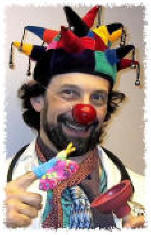Caffeine May Slow Alzheimer’s Disease and Other Dementias and Restore Cognitive Function
Athough caffeine is the most widely consumed psychoactive drug worldwide, its potential beneficial effect for maintenance of proper brain functioning has only recently begun to be adequately appreciated. Substantial evidence from epidemiological studies and fundamental research in animal models suggests that caffeine may be protective against the cognitive decline seen in dementia and Alzheimer’s disease (AD). A special supplement to the Journal of Alzheimer’s Disease, “Therapeutic Opportunities for Caffeine in Alzheimer’s Disease and Other Neurodegenerative Diseases,” sheds new light on this topic and presents key findings. [continue reading…]
Dementia
 Bringing smiles and humour into hospital settings through clown doctors could help dementia sufferers. Dr Bernie Warren will present this and his other recent findings on the benefits of ‘clown doctors’ at the British Psychological Society’s Annual Conference in Stratford-upon-Avon on 15th April 2010. [continue reading…]
Bringing smiles and humour into hospital settings through clown doctors could help dementia sufferers. Dr Bernie Warren will present this and his other recent findings on the benefits of ‘clown doctors’ at the British Psychological Society’s Annual Conference in Stratford-upon-Avon on 15th April 2010. [continue reading…]
A self-administered test to screen for early dementia could help speed the diagnosis and subsequent treatment of memory disorders, including Alzheimer’s disease. It could also provide health care providers and caregivers an earlier indication of life-changing events that could lie ahead. [continue reading…]
Specific Memory Impairments in Dementia and MCI from goCognitive on Vimeo.
In this interview, Dr. Maureen Schmitter-Edgecombe of Washington State University discusses different types of memory concepts – including semantic memory, episodic memory, prospective memory, source memory, and working memory and how these are affected by dementia and MCI. Greg Lee, the interviewer, is a psychology undergraduate student at the University of Idaho.
Source: goCognitive

